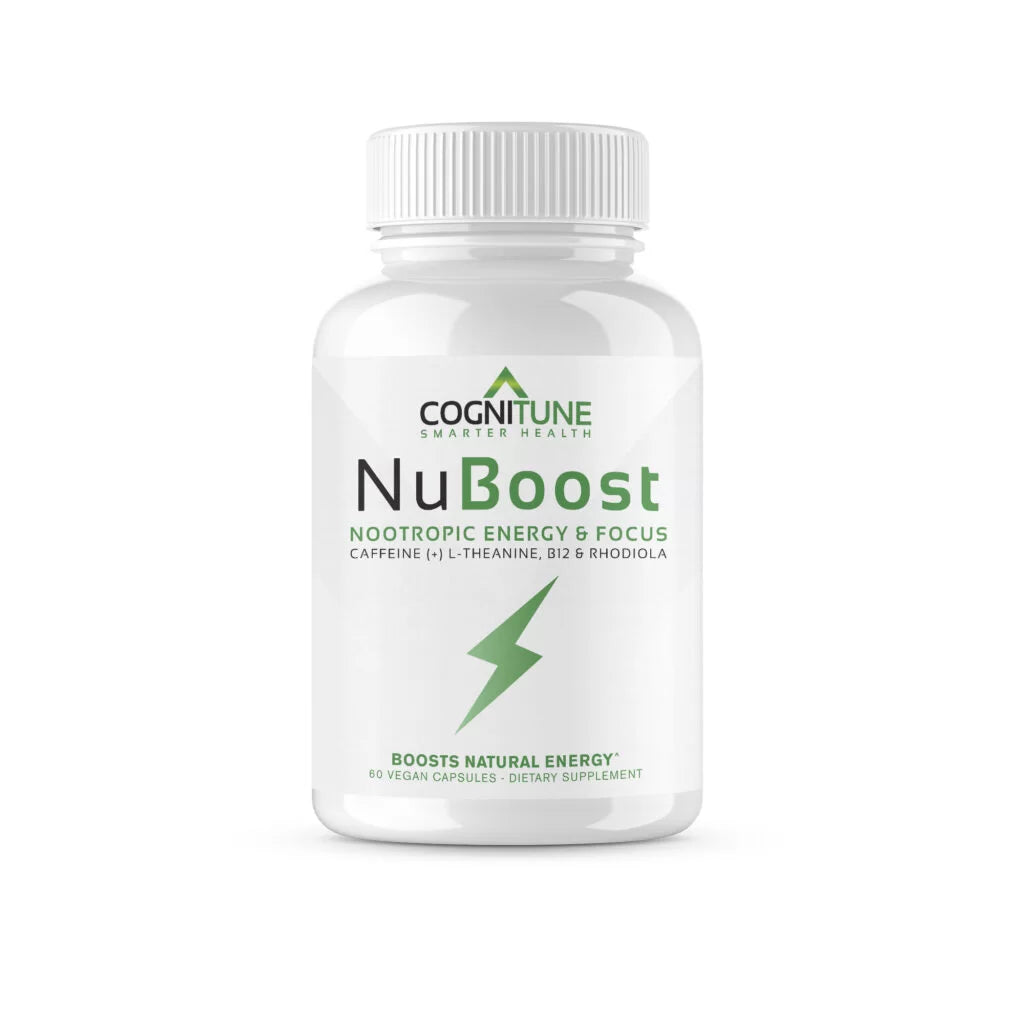Sustained Energy: Smart Lifestyle Choices for All-Day Energy Boost

Energy is the driving force behind every human activity, from the simple act of breathing to the most complex cognitive tasks.
Maintaining consistent energy levels can feel like an elusive goal, with many experiencing fluctuations throughout the day. These peaks and crashes are often due to lifestyle choices, physiological factors, and dietary habits. But with the right approach, steady, sustained energy is achievable. Let’s dive into how the body produces and regulates energy and explore smart lifestyle choices that can support this natural process.
The Science of Energy in the Human Body
Energy production in the body is a complex but fascinating process. At its core, our energy comes from the food we eat—carbohydrates, fats, and proteins. Once ingested, these nutrients are broken down into simpler forms: glucose (from carbs), fatty acids (from fats), and amino acids (from proteins). These molecules enter the bloodstream and fuel our cells.
Inside each cell, particularly within the mitochondria (the cell's powerhouse), these nutrients undergo cellular respiration—a process that converts them into usable energy known as ATP (adenosine triphosphate). Think of ATP as the body’s energy currency, fueling everything from muscle movements to brain activity. Cellular respiration can be divided into three main stages:
Glycolysis: This process occurs in the cell’s cytoplasm and breaks down glucose molecules into pyruvate, generating a small amount of ATP. It doesn’t require oxygen, making it an anaerobic process. Glycolysis is the first step of energy production and is essential for providing quick bursts of energy.
The Citric Acid Cycle (Krebs Cycle): Pyruvate from glycolysis is further broken down in the mitochondria, where it enters the citric acid cycle. During this process, high-energy electrons are produced along with carbon dioxide as a byproduct. This cycle is aerobic, meaning it requires oxygen to proceed. Learn more about the Krebs Cycle.
The Electron Transport Chain: The electrons from the citric acid cycle are transferred through a series of protein complexes in the mitochondria’s inner membrane. This generates a gradient that drives the production of a large amount of ATP. Oxygen is vital at this stage as it acts as the final electron acceptor, forming water as a byproduct. Read about the electron transport chain.
Fun Fact: Each glucose molecule can yield up to 38 ATP molecules during cellular respiration, making it a highly efficient process for energy production.
However, ATP production is influenced by factors like nutrient intake, hydration, and the presence of essential vitamins. Making sustainable choices in these areas can help maintain consistent energy throughout the day.

Making Sustainable Choices for Lasting Energy
Balanced Nutrition: The Foundation of Consistent Energy
Nutrition is the bedrock of sustained energy. While carbs, fats, and proteins all contribute to energy, the quality and balance of these nutrients matter. Let’s take a closer look:
Carbohydrates: Quick and Slow Energy Sources:
Carbohydrates are the body's primary source of energy, especially for the brain and muscles. Simple carbohydrates (found in sugary snacks, refined grains) are rapidly absorbed, causing spikes in blood sugar followed by sharp crashes. These fluctuations can lead to feelings of fatigue and hunger shortly after consumption.
On the other hand, complex carbohydrates (like whole grains, legumes, vegetables) are digested more slowly. This slow digestion leads to a gradual release of glucose into the bloodstream, providing a steady, sustained energy supply. Complex carbs are also rich in dietary fiber, which helps regulate blood sugar levels by slowing glucose absorption.
Proteins: Building Blocks for Lasting Energy:
Proteins are not just for muscle repair; they play a crucial role in energy metabolism. When proteins are broken down, they provide amino acids that are used to build and repair tissues, synthesize enzymes, and produce hormones. Amino acids can also be converted into glucose when carbohydrate intake is low, helping to maintain steady blood sugar levels. Read more about the benefits of complex carbs.
Including lean meats, fish, eggs, tofu, and legumes in your diet provides high-quality protein sources that support muscle health, immune function, and lasting energy. Explore the importance of dietary protein.
Healthy Fats: Sustained, Long-Term Fuel:
Fats are essential for sustained energy because they are metabolized slowly, providing a longer-lasting energy supply. They are critical for brain function, hormone production, and the absorption of fat-soluble vitamins (A, D, E, and K). Healthy fats also play a role in cell membrane integrity, which is vital for overall cellular health.
Monounsaturated and polyunsaturated fats, found in avocados, nuts, seeds, olive oil, and fatty fish, are beneficial for cardiovascular health and energy metabolism. Omega-3 fatty acids, in particular, have been shown to support cognitive function, mood, and sustained energy levels. Discover the benefits of healthy fats.
Micronutrients: Small But Mighty:
Vitamins and minerals, though required in smaller amounts, are indispensable for energy metabolism. B vitamins (especially B1, B2, B3, B6, B9, and B12) serve as coenzymes that help convert carbohydrates, fats, and proteins into ATP. Deficiencies in these vitamins can lead to fatigue and reduced energy production.
Magnesium is another essential mineral that plays a role in over 300 biochemical reactions, including those involved in ATP production. It is vital for maintaining muscle and nerve function, supporting a steady heartbeat, and enhancing energy production. Read about the role of magnesium in energy metabolism.
Iron is crucial for the formation of hemoglobin, a protein in red blood cells that transports oxygen throughout the body. Without adequate iron, tissues receive less oxygen, leading to feelings of fatigue. Learn more about iron’s role in the body.
Quick Tip: Pair proteins with complex carbs for steady blood sugar levels and longer-lasting energy.
Call to Action: Need a boost? Check out CogniTune’s Energy Support Supplements for a natural edge!

Hydration: The Often Overlooked Energizer
Water is indispensable to almost every bodily function. Even slight dehydration can lead to fatigue. Every cell, tissue, and organ in your body needs water to function correctly. Here’s why hydration matters:
Water’s Role in Metabolic Processes:
Water serves as the medium for various biochemical reactions, including those involved in ATP production. When dehydrated, these reactions slow down, leading to reduced energy levels.
Water is also essential for the transport of nutrients to cells and the removal of metabolic waste. Without adequate hydration, cells become less efficient at energy production. The importance of hydration for energy.
Hydration and Electrolyte Balance:
Electrolytes (such as sodium, potassium, and chloride) are minerals that help balance fluid levels inside and outside of cells. They are crucial for nerve function, muscle contractions, and maintaining hydration. Drinking electrolyte-rich beverages can replenish lost minerals, especially after intense physical activity.
Hydration Tip: Drink at least 8 cups (2 liters) of water daily. Adjust based on activity levels and environmental conditions. Foods like cucumbers, oranges, and watermelons are also excellent for hydration.
"Staying hydrated is one of the simplest yet most effective ways to maintain energy."

Sleep: Nature's Energy Recharger
Sleep is a cornerstone of energy management. During sleep, the body undergoes a process of restoration and repair, particularly in the deep sleep stages:
The Role of Deep Sleep in Energy Regulation:
During deep sleep, the body repairs tissues, balances hormone levels, and strengthens the immune system. This stage is also critical for the consolidation of memories and the clearing out of metabolic waste products from the brain.
Growth hormone is released during deep sleep, which stimulates growth, cell reproduction, and cell regeneration. Lack of deep sleep can disrupt these processes, leading to hormonal imbalances, impaired glucose metabolism, and reduced cognitive function. How sleep affects energy and metabolism.
Circadian Rhythm and Sleep Consistency:
The body’s internal clock, or circadian rhythm, helps regulate the sleep-wake cycle. Consistency is key—maintaining a regular sleep schedule ensures your body can efficiently go through all the restorative stages of sleep.
Sleep Tip: Create a relaxing bedtime routine and aim for 7-9 hours of sleep per night. Reducing caffeine intake in the afternoon and minimizing screen time before bed can enhance sleep quality.

Mindful Movement: Exercise as an Energy Booster
Regular exercise boosts circulation, helping deliver oxygen and nutrients to cells. It also releases endorphins—feel-good chemicals that reduce fatigue. Exercise improves cardiovascular health, enabling the heart to pump blood more efficiently and deliver oxygen and nutrients to tissues.
Cardiovascular Exercise:
Activities like running, cycling, and swimming improve the efficiency of the heart and lungs, increasing the delivery of oxygen throughout the body. This oxygen boost directly enhances ATP production, helping you feel more energized. Benefits of cardiovascular exercise.
Strength Training:
Building muscle not only improves physical strength but also enhances metabolic health. Muscles use more energy than fat, even at rest, meaning you’ll burn more calories throughout the day. Strength training can improve the body’s ability to use glucose efficiently, leading to more stable energy levels.
Exercise and Neurotransmitter Production:
Physical activity stimulates the release of dopamine, serotonin, and norepinephrine, neurotransmitters that help improve mood and focus. This neurochemical boost can help you feel more alert, energized, and motivated throughout the day. Exercise and neurotransmitters.
Real-Life Example: “I used to feel sluggish by midday, but after adding a 10-minute walk to my routine, my energy levels improved dramatically.”

Stress Management: Finding Balance
Chronic stress can drain energy reserves and lead to exhaustion. The body’s fight-or-flight response releases cortisol and adrenaline—hormones that prepare you for immediate action. While this is helpful in the short term, chronic stress keeps the body in a constant state of high alert, leading to burnout.
Mind-Body Techniques for Stress Reduction:
Techniques such as deep breathing, meditation, yoga, and tai chi can lower cortisol levels, reduce muscle tension, and promote relaxation. Regular practice of these activities helps shift the body from the sympathetic (stress) state to the parasympathetic (rest) state.
Adaptogenic Herbs:
Adaptogens like ashwagandha, rhodiola, and ginseng can help the body adapt to stress by balancing cortisol levels and supporting adrenal gland health. They have been used in traditional medicine for centuries to combat fatigue and improve focus. Scientific studies on adaptogens.
Quick Tip: Mindfulness practices, even for just 5-10 minutes a day, can significantly lower stress and support balanced energy.
The Role of Natural Supplements
While a balanced diet and lifestyle form the foundation of sustained energy, natural supplements can provide additional support. Supplements like B-complex vitamins, magnesium, and Coenzyme Q10 (CoQ10) can support energy production. Adaptogens like ashwagandha and rhodiola can help the body adapt to stress, stabilizing energy levels.
The Science of CoQ10:
CoQ10 is a coenzyme that helps the mitochondria produce ATP. Natural levels of CoQ10 tend to decrease with age, and supplementation can help restore cellular energy, particularly in people with conditions that affect mitochondrial health. The benefits of CoQ10 supplementation.
Magnesium and Muscle Recovery:
Magnesium supports over 300 biochemical reactions in the body, including muscle relaxation and ATP production. Magnesium supplements can help with muscle recovery after exercise, reducing the risk of fatigue and cramps.
Call to Action: Discover how CogniTune’s Energy Support Supplements can help boost your day!
Creating an Energy-Sustaining Routine
Here’s a simple routine to help you maintain energy all day:
- Morning: Balanced breakfast + water
- Midday: Healthy lunch with lean proteins + complex carbs
- Afternoon: Stay active with a short walk or stretching
- Evening: Light dinner with healthy fats + vegetables
- Night: Prioritize sleep hygiene (consistent bedtime)
Call to Action: Ready to make lasting energy a part of your life? Explore our range of natural supplements designed to support a healthy, vibrant lifestyle.
In Conclusion
Sustained energy isn’t about quick fixes; it’s about creating healthy habits. By focusing on balanced nutrition, proper hydration, quality sleep, regular exercise, and stress management, you can maintain consistent energy throughout the day. CogniTune offers supplements that can provide that extra edge, supporting your journey to a healthier, more energized you.
FAQs
- How can I naturally boost my energy levels?
- You can boost energy naturally by eating a balanced diet, staying hydrated, exercising regularly, getting enough sleep, and managing stress. Incorporating complex carbs, lean proteins, and healthy fats can stabilize blood sugar and maintain energy.
- What foods help maintain steady energy throughout the day?
- Foods like whole grains, lean meats, fish, avocados, nuts, and green leafy vegetables are excellent for sustained energy. They release energy slowly, keeping you fueled longer.
- Can stress affect my energy levels?
- Yes, chronic stress can lead to fatigue and low energy. Effective stress management, such as through meditation or exercise, can help balance energy levels.
- What supplements are best for energy support?
- B-complex vitamins, magnesium, CoQ10, and adaptogens like ashwagandha and rhodiola are great for supporting energy. CogniTune offers a range of supplements to help.
- Why is hydration important for energy?
- Water is essential for transporting nutrients to cells and removing waste. Dehydration can slow down these processes, leading to fatigue and reduced concentration.




